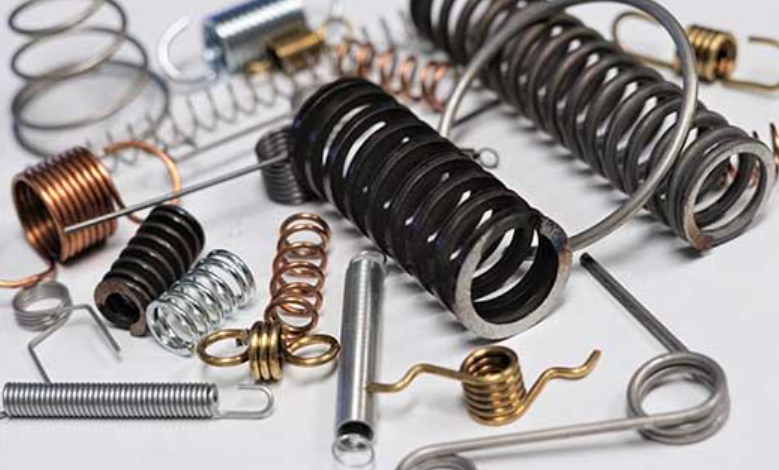Choosing a Dependable Custom Spring Supplier

Introduction
Springs may seem like simple mechanical elements, but they serve critical functions in almost every industry. From automotive and aerospace to electronics and consumer goods, springs are used to store energy, apply force, or absorb shock. When products require precision, performance, and reliability, sourcing these components from a trusted custom spring supplier becomes essential. Choosing the right supplier is not just about cost — it’s about consistency, quality, and the ability to meet unique technical requirements.
What is a Custom Spring Supplier
A custom spring supplier is a company that specializes in the design, manufacturing, and delivery of springs made to exact specifications. Unlike off-the-shelf springs, custom springs are designed for a particular function, application, and environment. Whether you need a non-standard size, unusual shape, specific tension, or unique material, a custom spring supplier provides the expertise and flexibility to deliver a tailored solution.
These suppliers collaborate with clients to develop prototypes, run simulations, and manufacture final products that meet or exceed the desired performance requirements.
Key Qualities of a Good Custom Spring Supplier
1. Engineering Support and Technical Expertise
One of the most important features of a reliable custom spring supplier is their technical capability. Experienced suppliers offer full engineering support, assisting clients from the design phase through production. They use tools like CAD software, 3D modeling, and finite element analysis to simulate spring behavior under various loads and environments.
This expertise ensures that the final product works seamlessly within the intended application, reducing the chance of failure or inefficiency.
2. Material Selection Guidance
Different spring applications require different materials. A custom spring supplier must be able to work with a wide range of materials including:
- Stainless steel
- Carbon steel
- Phosphor bronze
- Beryllium copper
- Titanium
- Inconel and other specialty alloys
Material selection affects the spring’s durability, corrosion resistance, electrical conductivity, and fatigue life. A knowledgeable supplier helps clients choose the right material for their specific use case.
3. Full Range of Spring Types
A good custom spring supplier can provide all major types of springs, including:
- Compression springs
- Extension springs
- Torsion springs
- Double torsion springs
- Flat springs
- Wave springs
- Wire forms
In addition to these standard types, the supplier should also have the capacity to produce complex or irregular shapes based on client designs.
4. Quality Control Standards
To ensure performance and safety, a dependable custom spring supplier supplier implements strict quality control at each stage of production. Common practices include:
- Material certification
- Dimensional checks
- Load testing
- Fatigue and cycle testing
- Final inspection and documentation
Look for a custom spring supplier that follows internationally recognized quality standards such as ISO 9001. This assures that their processes are standardized, monitored, and continually improved.
See also: How AI Face Swap Technology Is Shaping Influencer Marketing
Industries that Rely on Custom Spring Suppliers
Automotive
Cars, trucks, and commercial vehicles rely on custom springs in suspension systems, seats, door mechanisms, and engine components. Suppliers must meet tight tolerances and comply with strict safety standards.
Aerospace
Aircraft require springs that can withstand extreme pressure, temperature fluctuations, and vibrations. A custom spring supplier catering to the aerospace sector must deliver components that are lightweight, durable, and precisely manufactured.
Electronics
Small, precision springs are used in a wide variety of electronic devices including mobile phones, circuit boards, cameras, and connectors. These applications require micro-sized springs with tight dimensional tolerances.
Medical Devices
From surgical instruments to diagnostic machines, medical equipment often uses springs that must be biocompatible and resistant to sterilization processes. Custom spring suppliers must also comply with regulatory requirements in this industry.
Industrial Machinery
Heavy-duty machinery needs springs that can perform under continuous load, high impact, and harsh environmental conditions. Custom spring solutions are necessary to ensure equipment reliability and efficiency.
Benefits of Working with a Custom Spring Supplier
1. Tailored Solutions
Off-the-shelf products may not meet your technical needs. A custom spring supplier delivers components that are designed specifically for your application, ensuring a perfect fit and optimal performance.
2. Enhanced Product Performance
Custom-designed springs operate more efficiently and last longer than generic alternatives. This leads to better end-product reliability, reduced maintenance, and improved user satisfaction.
3. Reduced Design Constraints
Having access to custom spring design capabilities gives your engineers greater freedom during product development. They are no longer limited by standard spring dimensions or specifications.
4. Streamlined Supply Chain
A single, experienced custom spring supplier can handle everything from prototyping to full-scale production. This simplifies procurement and logistics, helping you save time and resources.
Advanced Technologies in Custom Spring Manufacturing
Modern custom spring suppliers leverage cutting-edge technologies to improve product quality and reduce lead times. These include:
- CNC coiling and forming machines
- Laser cutting and welding
- Automated inspection systems
- Heat treatment furnaces
- Robotic handling for consistent processing
Digital systems also enable real-time tracking of production and provide clients with updates at every stage. This transparency enhances trust and allows for better project planning.
How to Choose the Right Custom Spring Supplier
Before committing to a supplier, consider the following factors:
- Experience and reputation: How long have they been in the business, and what industries do they serve?
- Production capacity: Can they scale up to meet your growing needs?
- Customization process: Do they involve you in the design and prototyping phases?
- Certifications and compliance: Do they meet international standards and industry-specific regulations?
- Customer service: Are they responsive, transparent, and willing to work closely with your team?
Asking for product samples, site visits, or testimonials can also help you evaluate their capabilities.
Future Trends in the Custom Spring Industry
The custom spring manufacturing sector is evolving with advancements in smart manufacturing and sustainable practices. Some key trends include:
- Use of eco-friendly materials
- Adoption of automation and AI in production
- Development of smart springs with sensors for real-time monitoring
- Focus on lightweight and high-strength materials for next-generation devices
Staying ahead of these trends ensures that your products remain competitive in both function and sustainability.
Conclusion
A reliable custom spring supplier plays a crucial role in the success of modern products across a wide range of industries. From ensuring that springs meet the exact specifications to delivering them on time and within budget, the right supplier becomes a trusted partner in your value chain.
By working with a knowledgeable and experienced provider, businesses can enhance performance, extend product life, and bring innovative ideas to life. Whether you need a handful of prototypes or large-scale production, choosing the right custom spring supplier will provide long-term value and engineering confidence.





